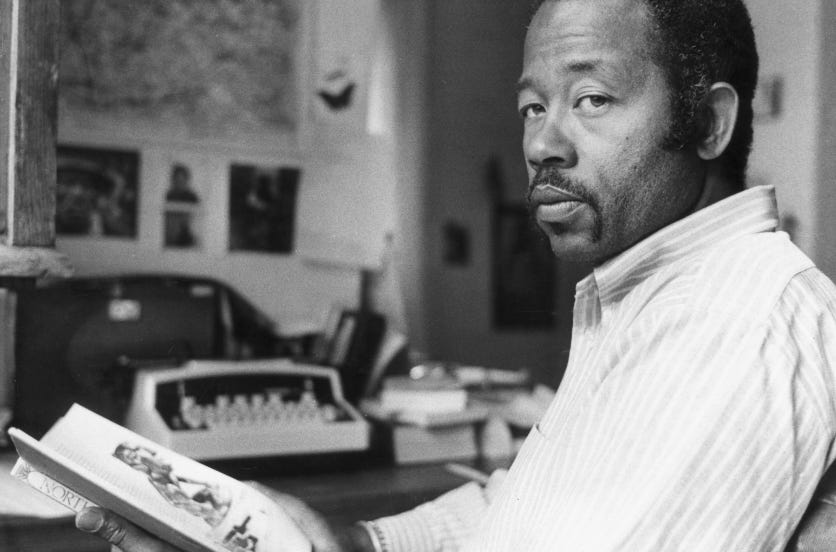Eldridge Cleaver
Eldridge Cleaver was a prominent figure in the American civil rights and Black liberation movements during the 1960s and 1970s.
Cleaver’s life story is a complex and controversial one, marked by activism, incarceration, and a transformation from a criminal to a political leader. Here is a detailed history of Eldridge Cleaver:
Early Life:
1. Born on August 31, 1935, in Wabbaseka, Arkansas, Eldridge Cleaver grew up in a segregated and racially charged environment, which deeply influenced his worldview.
Criminal Activities:
2. In his teenage years, Cleaver became involved in criminal activities, including burglary and theft, which led to several arrests and incarcerations during the 1950s.
Imprisonment and Conversion:
3. In 1957, Cleaver was sentenced to prison for a burglary conviction. During his time in prison, he underwent a significant transformation. He began reading extensively, including works by African American authors and prominent social theorists.
4. Cleaver was particularly influenced by the writings of Malcolm X and the Nation of Islam, which inspired his conversion to Islam while in prison.
Publication of "Soul on Ice":
5. Cleaver's most famous work, "Soul on Ice," was published in 1968 while he was still in prison. This collection of essays explored his evolving political and racial consciousness and gained widespread attention.
Leadership in the Black Panther Party:
6. After his release from prison in 1966, Cleaver joined the Black Panther Party, a militant and revolutionary organization dedicated to fighting racial oppression and police brutality. His eloquence and writing skills quickly elevated him to a leadership position within the party.
7. Cleaver's role in the Black Panther Party was crucial in shaping its ideology and promoting its revolutionary agenda. He served as the Minister of Information and wrote influential documents for the party.
Conflict and Exile:
8. However, Cleaver's time in the Black Panther Party was marked by internal conflicts and disagreements with other leaders, particularly Huey P. Newton. These conflicts led to a split in the party, with Cleaver forming the Black Panther Party (Intercommunal Youth Institute) in 1971.
9. In 1968, Cleaver faced legal troubles stemming from his involvement in a shootout with police officers. Fearing arrest, he went into exile in Cuba and later Algeria, where he continued his activism against racial oppression in the United States.
Return to the United States:
10. Cleaver returned to the United States in 1975 after being granted amnesty by the U.S. government. He renounced his earlier militant rhetoric and embraced a more mainstream political approach.
11. Over the following years, Cleaver pursued various political and religious interests, including Christianity. He ran for political office but was unsuccessful.
Legacy and Later Life:
12. Eldridge Cleaver's legacy is a complicated one. He played a significant role in the Black liberation movement during the 1960s and was a powerful voice against racial injustice. However, his later life was marked by personal and political transformations that generated mixed opinions.
13. Cleaver passed away on May 1, 1998, in Pomona, California, leaving behind a complex and controversial legacy that reflects the turbulent times in which he lived and the evolving nature of his beliefs and activism.
Eldridge Cleaver's journey from a troubled youth to a prominent activist and writer, his time with the Black Panther Party, and his later transformation and political endeavors make him a significant figure in the history of the American civil rights movement. His life serves as a testament to the power of personal change and growth in the face of adversity.



